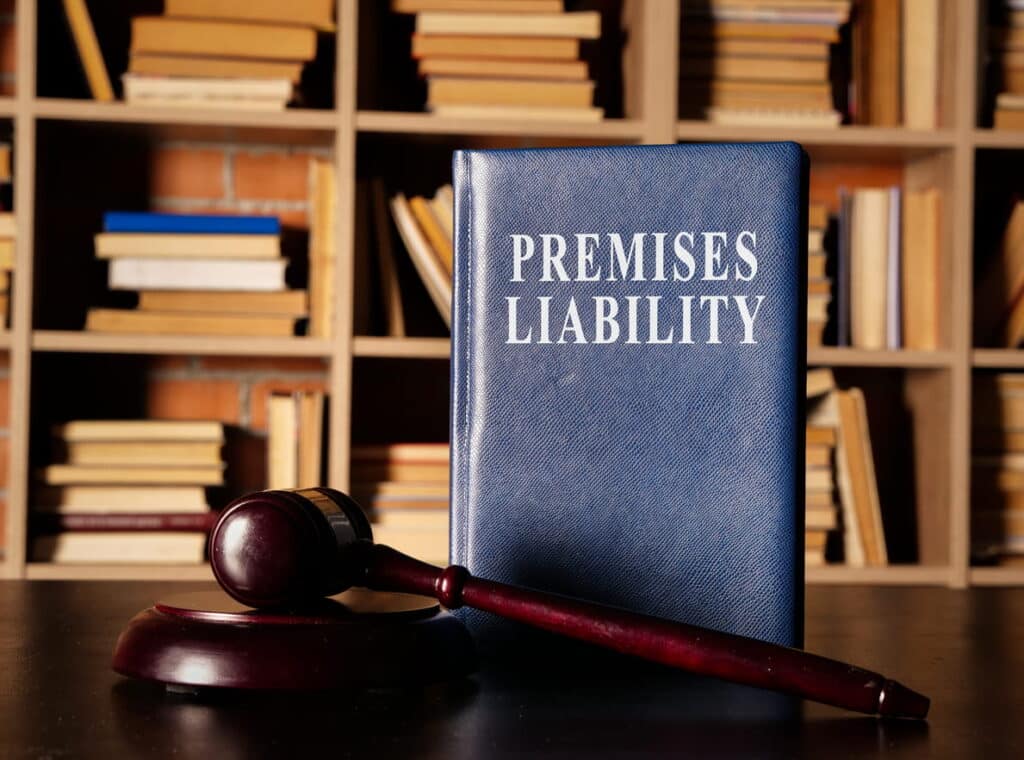Property owners can file claims covering a variety of assets, including buildings, vehicles, personal belongings, or land. When faced with property damage, understanding the basics of a claim becomes crucial to protect your legal rights and financial interests.
START YOUR FREE CONSULTATION
NO FEES UNLESS WE WIN!
What is a property damage claim?

A property damage claim is the legal action a property owner takes in order to seek compensation for damage to a personal residence, business, or other property. When filing a claim, a property owner asserts the right to be reimbursed for losses resulting from incidents such as accidents, natural disasters, or intentional acts.
When and where to file a property damage claim
When you file a claim and with whom largely depends on the specific circumstances surrounding the incident. Property owners must file their claims in the appropriate court. If the damage assessed is $10,000 or less, then the case will be heard in small claims court. Anything above this amount can be heard in a justice court or district court.
Parties will have the choice of resolving the case mutually (between insurance companies and responsible parties) or resolving their case through court. In both cases, a claimant needs to provide strong evidence of their case.
Additionally, you should file a claim as soon as possible after the damage occurs. Waiting to file a claim can potentially cause you to lose critical evidence, delay the claims process and jeopardize the overall success of your case. According to the Nevada Revised Statutes 11.190(3)(c), the statute of limitations for property damage is three years.
Types of property damage claims
There are typically four types of property damage claims that can be brought forward. They include:
Residential damage
This type of claim impacts your residential property and is a fairly straightforward process. Residential damage claims can be brought forward for a variety of reasons including natural disasters and intentional or negligent acts of an individual.
Commercial property damage
Impacting business property such as a building, vehicle, tractor, etc., business owners should be covered under the business insurance policy for a wide range of damages. A business insurance policy typically protects business owners in the event of a fire, explosions, busted plumbing, as well as thefts and vandalism. Natural disasters such as earthquakes and floods are not typically covered, but depending on your unique policy you may or may not be able to seek compensation for this type of damage.
Motor vehicle damage
Your vehicle is a valuable asset and protecting it is just as important as protecting any brick-and-mortar building. Depending on the circumstances of the damage, you may be able to seek compensation from both your insurance company and the responsible party. An auto accident attorney in Las Vegas can help you understand your rights and options.
Personal property damage
You may have other expensive types of personal property, such as an RV, lawn care equipment, rental property, or other investments. You have the right to protect these valuable assets, and you can bring forward a claim against responsible parties.
How to file a property damage claim
The property damage insurance claim process is pretty simple and straightforward. The process will require you to provide sufficient evidence in order to prove your case. Regardless of the property damage, here’s how to handle property damage claims:
- Alert your homeowners, business, or auto insurance company about the damage
- Secure the property, collect critical evidence such as photographs and witness statements, and schedule a time for an insurance adjuster to come out and view the property
- You can work with your insurance company’s adjuster or seek out the services of your own vendor such as an engineer, contractor, or public adjuster
- Do not begin repairs on the property unless approved by the insurance company
- Seek out legal representation and go after liable parties
What is a subrogation claim for property damage?
A property damage subrogation claim is when your insurance company seeks reimbursement from a responsible third party for the expenses it paid to its policyholder. Essentially, the insurance company steps into your shoes as the policyholder and goes after the at-fault party to recover the amount it paid out.
Subrogation claims typically come about in situations like a car accident. Through subrogation, the insurance company aims to recoup the costs it incurred by holding the responsible party accountable.
Property damage insurance claim process
Understanding what will happen when you file a damage claim is important. Here is what you should expect of a property damage insurance claim:
- No matter the type of property that was damaged, you’ll need to always start by connecting with your insurance broker. This is as simple as contacting the insurance company in your area and speaking with a local agent.
- After you contact your insurance, the claims investigation will begin. An adjuster will be sent out to your personal property to assess the damage, what the damage is valued at, and what your insurance policy will cover. Additionally, an adjuster will determine liability in order to go after other responsible parties.
- The investigation phase is also a critical process because this is where negotiations can begin. Your insurance company may not cover the damage to the full extent and seeking legal guidance can help you better navigate with the insurance company, or seek out other liable parties that will be held responsible for payment.
- After an adjuster completes the investigation and your insurance company has reviewed your policy and coverage, they may offer you a settlement in your claim. If you accept the settlement, your claims process ends. However, if you are not satisfied with the settlement agreement, you will have the option to push back with your own negotiations or seek out other legal options.
It’s important to note that in cases where you’ve also been hurt during the incident that caused the property damage, you may also be able to recover compensation for medical costs and pain and suffering associated with your injury. A personal injury attorney can help you navigate any subrogation claims that your insurance company may have made following an incident.
Should I file a property damage claim?

You should always file a property damage claim in order to recover losses. It can be overwhelming, and even intimidating to navigate the claims process alone. Working with an experienced personal injury lawyer can help better equip you with the information you need in order to exercise your rights and explore your legal options.
Areas We Service in Las Vegas, Nevada
Las Vegas Strip | Henderson | Anthem | Summerlin | Paradise | Spring Valley | North Las Vegas | Summerlin North | Summerlin South | Sunrise Manor | Nellis AFB | Desert Shores | Downtown South | Charleston | Richfield | Crestwood | Angel Park Ranch | Queensridge | Casa Grande Pines | Winchester | West Las Vegas | Green Valley North | Lake Las Vegas | Sun City Summerlin | La Madre Foothills | Tule Springs | Mac Donald Highlands | Green Valley Ranch

Las Vegas Premises Liability Testimonial
“Everybody was really good about keeping me updated
The whole staff was very friendly, And provided great customer service. I’m happy with this Office.”
START YOUR FREE CONSULTATION
NO FEES UNLESS WE WIN!
SE HABLA ESPAÑOL
Call Now! Free Consultation!

Adam S. Kutner
PERSONAL INJURY LAWYER
With more than 34 years of experience fighting for victims of personal injury in the Las Vegas Valley, attorney Adam S. Kutner knows his way around the Nevada court system and how to get clients their settlement promptly and trouble-free.











